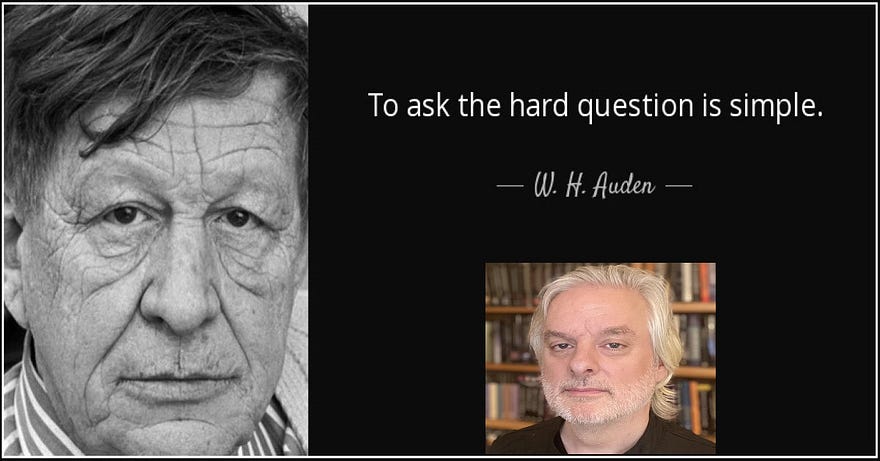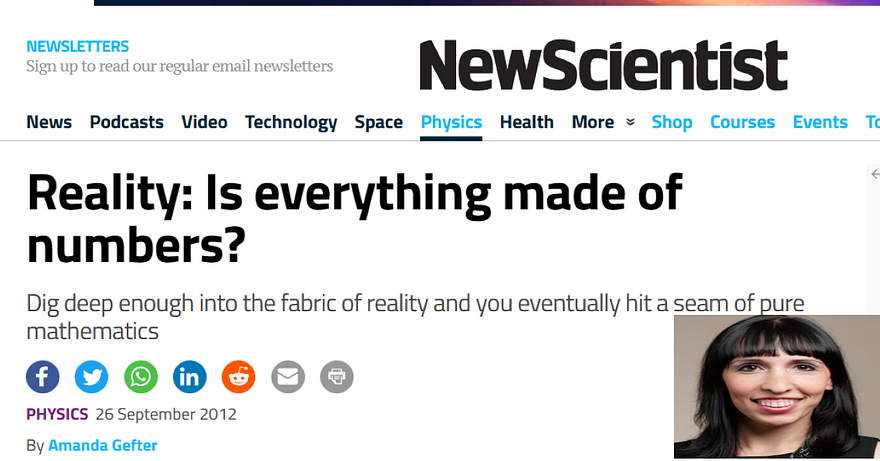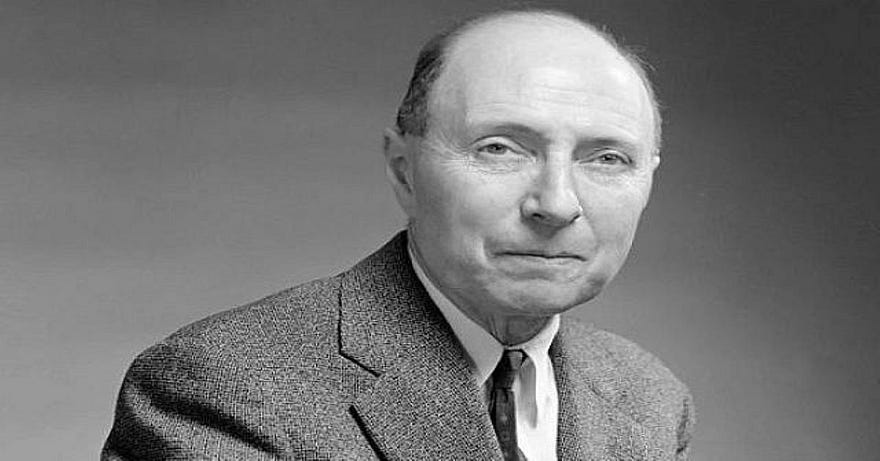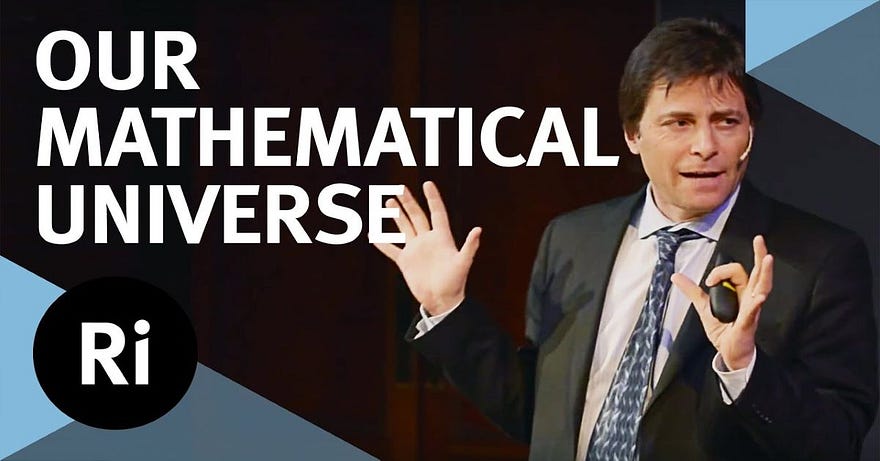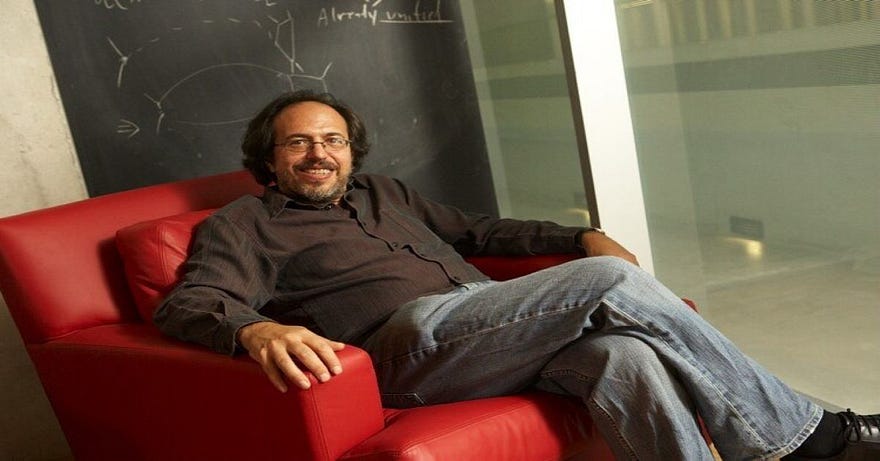The physicist Edwin Thompson Jaynes (1922–1998) once stated the following: “Somewhere in quantum theory, the distinction between reality and our knowledge of reality has become lost, and the result has more the character of medieval necromancy than of science.” This passage has been quoted many times. So what does it mean?

The words above are often quoted (see various citations here) in the critical context of quantum mechanics and its lack of commitment to reality.
This passage — and the rest of the paragraph it comes from — is, of course, hyperbolic. (See the complete paragraph at the end of this essay.) However, it can be excused (one can suppose) because it occurs at the end of an otherwise highly-technical paper… with lots of maths in it. (The paper is called ‘Quantum Beats’, which was published in 1980.)
So this passage is quoted again in this essay because it perfectly captures various (for want of a better word) realist positions on quantum mechanics.
Quantum Theory and the Copenhagen Interpretation
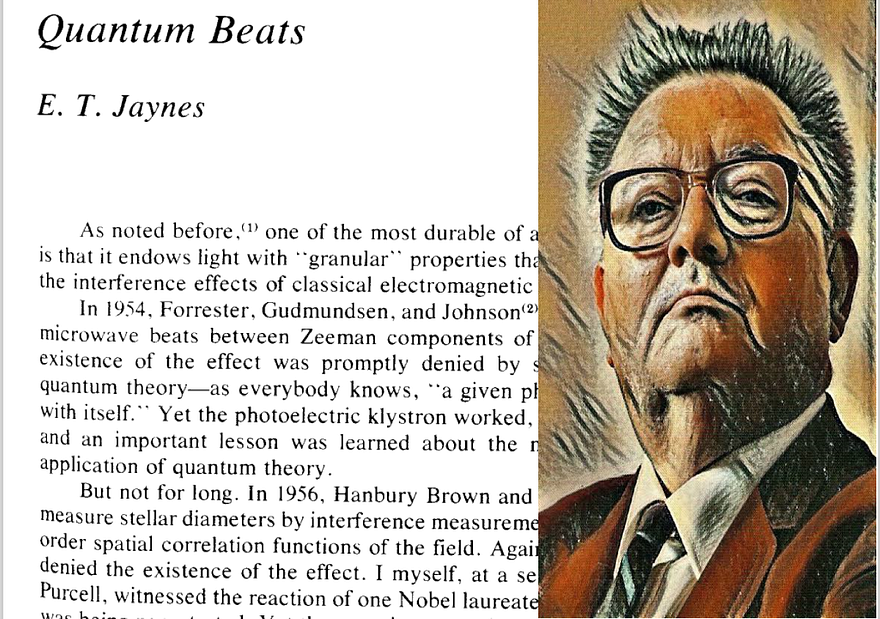
Edwin Jaynes’s critical account of quantum theory (or, more accurately, the Copenhagen interpretation) is broadly correct (i.e., once the rhetoric is cut out). Or, more accurately, it’s broadly standard.
For example, mathematical physicist Roger Penrose also writes:
“It is a common view among many of today’s physicists that quantum mechanics provides us with NO picture of ‘reality’ at all! The formalism of quantum mechanics, on this view, is to be taken as just that: a mathematical formalism. This formalism, as many quantum physicists would argue, tells us essentially nothing about an actual QUANTUM REALITY of the world, but merely allows us to compute probabilities for alternative realities that might occur. Such quantum physicists’ ontology — to the extent that they would be worried by matters of ‘ontology’ at all — would be the view (a): that there is simply no reality expressed in the quantum formalism.”
Then Penrose continued:
“At the other extreme, there are many quantum physicists who take the (seemingly) diametrically opposite view (b): that the unitarily evolving quantum state completely describes actual reality, with the alarming implication that practically all quantum alternatives must always continue to coexist (in superposition).”
So readers may now wonder if the alternative which Penrose explained above (perhaps also a hint at the many-worlds interpretation) was something that Jaynes himself endorsed. That is, did Jaynes accept Penrose’s “other extreme”? Well, not really.
Specifically, Jaynes used his mind projection fallacy against Penrose’s other extreme. In Jaynes’s own words:
“[I]n studying probability theory, it was vaguely troubling to see reference to ‘gaussian random variables’, or ‘stochastic processes’, or ‘stationary time series’, or ‘disorder’, as if the property of being gaussian, random, stochastic, stationary, or disorderly is a real property, like the property of possessing mass or length, existing in Nature. Indeed, some seek to develop statistical tests to determine the presence of these properties in their data [].
“Once one has grasped the idea, one sees the Mind Projection Fallacy everywhere. [] The error occurs in two complementary forms, which we might indicate thus: (A) (My own imagination) → (Real property of Nature), [or] (B) (My own ignorance) → (Nature is indeterminate).”
On Jaynes’s view, then, “gaussian random variables”, “stochastic processes”, “stationary time series” and (more broadly) “disorder” aren’t “real properties”. Instead, they’re basically stand-ins for real properties.
However, did the Copenhagenists — or any others physicists — ever take them to be real properties in the way that Jaynes portrays them? Instead, didn’t the Copenhagenists, etc. simply take them as functions, tools, devices, etc?
[Interestingly, critics of some of the claims found in information theory have said that information is often seen as — quoting Jaynes again, though on quantum theorists — “a real property, like the property of possessing mass or length, existing in Nature”.]
All that said, can’t it now be argued that the Copenhagenists were indeed realists about mathematical entities, rather than realists about physical properties?
[It’s worth noting here how Jaynes attempted to provide experimental and technical solutions to what others may see as the purely philosophical problems of interpretation. Jaynes, particularly, had a problem with such important ideas as the uncertainty principle and the divergences arising in quantum electrodynamics (see here), which I’m not really qualified to comment upon.]
To sum up. In the opening quote and elsewhere, Jaynes was essentially arguing against the Copenhagen interpretation of quantum mechanics. (Jaynes used the words “quantum theory”, rather than “quantum mechanics”.) Indeed, Jaynes fully endorsed the widely-held view that this interpretation is (somehow) defeatist, idealist or even mysterious.
So now let me put the opposite case — i.e., to Jaynes’s — equally rhetorically.
Against Edwin Jaynes
Edwin Jaynes’s position is — essentially — that if a scientific theory (or statement) doesn’t categorically offer us the (absolute?) truth, then it’s equivalent to “medieval necromancy”. Or, less rhetorically, Jaynes believed (just like Albert Einstein before him) that such (absolute) truth about the “real physical situation” (or “reality”) must be the primary aim of all physicists.
The essentials of Jaynes’s position would have been classed as “dogmatic realism” by Werner Heisenberg, who actually aimed that term at none other than Albert Einstein.
So now let the physicist and writer Paul Davies (1946-) sum up this battle between Jaynes’s (possible) realism and Copenhagenist (as it were) irrealism in the following paragraph:
“Einstein’s opinions are labelled ‘dogmatic realism’, a very natural attitude, according to Heisenberg. Indeed, the vast majority of scientists subscribe to it. They believe that their investigations actually refer to something real ‘out there’ in the physical world and that the lawful physical universe is not just the invention of scientists. The unexpected success of simple mathematical laws in physics bolsters the belief that science is tapping into an already existing external reality. But, Heisenberg reminds us, quantum mechanics is also founded on simple mathematical laws that are very successful in explaining the physical world but still do not require that world to have independent existence in the sense of dogmatic realism. So natural science is actually possible without the basis of dogmatic realism.”
Thus, in physics at least, Jaynes believed that there’s simply no room for modesty or the acceptance of any philosophical (or epistemic) limitations to the (as it were) realist aim of physics.
Thus, it’s not surprising that Jaynes stepped up his rhetoric when he claimed that such a defeatist irrealism “constitutes a violent irrationality”.
Yet surely it’s irrational to claim something (or claim anything) about “reality” which simply cannot be either known or experimentally justified. It’s irrational because it allows almost anything to be said about this… reality. Indeed, almost everything has been said about it. Hence the 15 (!) main (sometimes mutually-contradictory ) interpretations of quantum mechanics — plus the dozens of peripheral interpretations.
So this is a competitive war of rival interpretations of quantum mechanics (or Jaynes’s quantum theory) in which every interpretational warrior tells us what reality is and all his rivals either reject or deny his claims.
(The astrophysicist and writer John Gribbin put it this way: “[T]he interpreters and their followers will each tell you that their own favoured interpretation is the one true faith, and all those who follow other faiths are heretics.”)
All that said, was Jaynes only talking about the interpretations of quantum mechanics?
Quantum Theory and Reality
It’s interesting to note that Edwin Jaynes didn’t criticise the interpretations of quantum theory (or quantum mechanics): he criticised quantum theory itself.
For example, Jaynes told us that
“it is pretty clear why present quantum theory not only does not use — it does not even dare to mention — the notion of a ‘real physical situation’”.
Jaynes had a problem with this lack of (to use a philosophical term which has been said to be Einstein’s stance) realism.
[Some commentators dispute Einstein’s realism. So it often depends on which period of his life and which aspect of his work is being referred to. For example, this is the Stanford Encyclopedia of Philosophy categorically saying that Einstein was not a realist.)
So, tell me something about this “real physical situation” or (to use Jaynes’s other word) “reality” which doesn’t also refer to experiments, observations, theories, tests, etc. What is it like?
That said, it can be supposed that it’s indeed (strictly) true that quantum theory doesn’t “use” the “notion of reality”. It certainly doesn’t “mention” such a thing. That’s because these words are either reifications or even anthropomorphisms regarding quantum theory.
So can an almost purely-mathematical theory “mention” reality? In what way would that work? Is a mathematical theory (or the quantum formalism) really meant to do that job?
On the other hand, many physicists, as interpreters of quantum theory, have both used and mentioned reality.
Now let’s take a detour in which it can be argued that Edwin Jaynes’s position on physics is similar to Peter van Inwagen’s position on metaphysics.
Peter van Inwagen’s “Ultimate Reality”
The American philosopher Peter van Inwagen (1942-) offers his readers some rhetorical accusations which are very much like Edwin Jaynes’s.
For example, van Inwagen uses the words Orwellianism, “relativism” and “idealism” against views which aren’t (his own?) metaphysical realism.
So take the final paragraph of Peter van Inwagen’s chapter ‘Objectivity’. In this chapter, van Inwagen also attacks what he calls “anti-realism” and mentions George Orwell’s novel Nineteen Eighty-Four in the process. He writes:
“[] I should like to direct the reader’s attention to the greatest of all attacks on anti-Realism, George Orwell’s novel 1984. Anyone who is interested in Realism and anti-Realism should be steeped in the message of this book. The reader is particularly directed to the debate between the Realist Winston Smith and the anti-Realist O’Brien that is the climax of the novel. In the end, there is only one question that can be addressed to the anti-Realist: How does your position differ from O’Brien’s?”
[See also van Inwagen’s ‘Was George Orwell a Metaphysical Realist?’.]
Van Inwagen seems to see anti-realism as some kind of postmodernist fashion designed to let anything go. Or, perhaps, van Inwagen sees anti-realism as advancing various “radical” political projects.
As it is, George Orwell’s Winston Smith isn’t really a realist at all. Or, rather, he’s neither a realist nor an anti-realist. That’s primarily because the dispute between anti-realism and realism (as least as expressed and characterised by van Inwagen) is largely a late-20th-century phenomenon within the domain of Anglo-American analytic philosophy; as well as, to a much lesser degree, within physics and some of the other sciences.
Interestingly enough, the cognitive scientist and linguist Steven Pinker almost replicates — as well as giving more detail — van Inwagen’s political positions when he himself mentions Orwell’s O’Brien. (This time in relation to postmodernism, not anti-realism.)
Firstly, Pinker quotes directly from Nineteen Eighty-Four:
“‘You believe that reality is something objective, external, existing in its own right. [] But I tell you, Winston, that reality is not external. Reality exists in the human mind, and nowhere else. Not in the individual mind, which can make mistakes, and in any case soon perishes; only in the mind of the Party, which is collective and immortal.’”
Van Inwagen also sees idealism as being indistinguishable from anti-realism when it comes to what really matters… philosophically. Indeed, the philosopher Michael J. Loux — van Inwagen’s fellow University of Notre Dame metaphysical realist — sees “subjective idealism” as “the view that we make it all up”.
So whereas Edwin Jaynes demanded (some kind of) realism from physicists, van Inwagen demands metaphysical realism from philosophers.
Van Inwagen also tells us that
“metaphysics is the attempt to discover the nature of ultimate reality”.
Thus, if a philosopher doesn’t accept van Inwagen’s definition (or if a philosopher questions the poetic term “ultimate reality”), then he can’t be doing metaphysics at all! Similarly, Jaynes believed that physicists are indulging in “mediaeval necromancy” and “irrationality” if they didn’t accept his own philosophical position on quantum theory.
So it’s not a surprise that van Inwagen also says the following:
“It is therefore misleading to think of anti-Realism as a metaphysics. [] Anti-Realism, rather, is a denial of the possibility of metaphysics [].”
It’s true that anti-realists emphasise the epistemological approach to metaphysics. And the Copenhagenists — and many other physicists - have also emphasised the epistemological approach to quantum mechanics.
Yet anti-realism is still an approach to metaphysics. It isn’t automatically a denial of the possibility — or existence — of metaphysics. However, it is if one accepts van Inwagen’s position in full. Indeed, it seems that one has to accept van Inwagen’s position in full if one wants to continue doing metaphysics.
To repeat: if one doesn’t abide by van Inwagen’s take on both realism and anti-realism (as well as his take on metaphysics itself), then, according to van Inwagen himself, one can’t be doing metaphysics at all.
It seems that something similar can also be said about Edwin Jaynes and his position on what he called “quantum theory”.
*****************************
Note:
“From this, it is pretty clear why present quantum theory not only does not use — it does not even dare to mention — the notion of a ‘real physical situation.’ Defenders of the theory say that this notion is philosophically naive, a throwback to outmoded ways of thinking, and that recognition of this constitutes deep new wisdom about the nature of human knowledge. I say that it constitutes a violent irrationality, that somewhere in this theory the distinction between reality and our knowledge of reality has become lost, and the result has more the character of medieval necromancy than of science.” — Edwin Jaynes
My flickr account and Twitter account.









